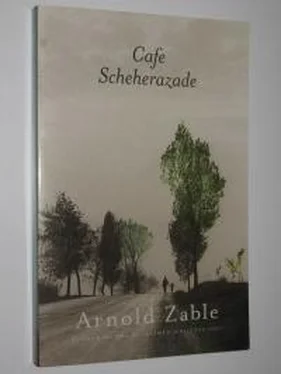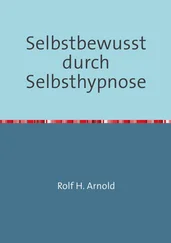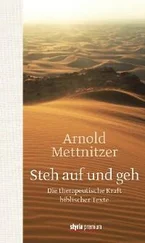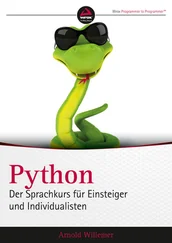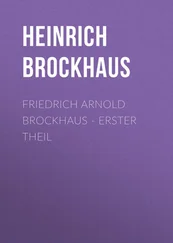Arnold Zable - Cafe Scheherazade
Здесь есть возможность читать онлайн «Arnold Zable - Cafe Scheherazade» весь текст электронной книги совершенно бесплатно (целиком полную версию без сокращений). В некоторых случаях можно слушать аудио, скачать через торрент в формате fb2 и присутствует краткое содержание. Город: Melbourne, Год выпуска: 2001, Издательство: Text Publishing Company, Жанр: Проза, на английском языке. Описание произведения, (предисловие) а так же отзывы посетителей доступны на портале библиотеки ЛибКат.
- Название:Cafe Scheherazade
- Автор:
- Издательство:Text Publishing Company
- Жанр:
- Год:2001
- Город:Melbourne
- ISBN:нет данных
- Рейтинг книги:4 / 5. Голосов: 1
-
Избранное:Добавить в избранное
- Отзывы:
-
Ваша оценка:
- 80
- 1
- 2
- 3
- 4
- 5
Cafe Scheherazade: краткое содержание, описание и аннотация
Предлагаем к чтению аннотацию, описание, краткое содержание или предисловие (зависит от того, что написал сам автор книги «Cafe Scheherazade»). Если вы не нашли необходимую информацию о книге — напишите в комментариях, мы постараемся отыскать её.
Cafe Scheherazade — читать онлайн бесплатно полную книгу (весь текст) целиком
Ниже представлен текст книги, разбитый по страницам. Система сохранения места последней прочитанной страницы, позволяет с удобством читать онлайн бесплатно книгу «Cafe Scheherazade», без необходимости каждый раз заново искать на чём Вы остановились. Поставьте закладку, и сможете в любой момент перейти на страницу, на которой закончили чтение.
Интервал:
Закладка:
Zalman lapses back into silence. Yossel and Laizer remain still.
For a moment we are disoriented, unable to move until, as abruptly as it had begun, the spell is broken, and the tumult is upon us again. Families are entering for their midday meals.
Waitresses are rushing between the tables. Avram and Masha have arrived and sit at the back table, checking the mounting bills.
Zalman, Yossel and Laizer retreat. The old men are spilling out onto the street. They cannot quite let go of each other's company. They linger against lampposts and parked cars, or stand in the middle of the pavement, unaware of passers-by. Sunday is reaching out for the afternoon, but they persist with their opinions as if to argue is to know they are alive. They continue to tell their tales, as if to talk is to know they have survived.
::::::::::::
Cafe Scheherazade
iii
In Acland Street, not so long ago, there was one cafe. Perhaps two. Now every month new cafes appear, like mushrooms sprouting after autumn rain. Each one boasts its distinctive appeal. Just stroll the length of one full block, the crucial block, from
Shakespeare Grove to Barkly Street. They stand side by side, with menus pasted on plate-glass windows, proclaiming their riches like spruikers at a country fair.
The range is overwhelming: from the Cosmo to La Roche, from the Blue Danube to the Espresso Bar. Stop for a moment in Deveroli's, a supermarket of a cafe, with enough chairs to seat a battalion of coffee connoisseurs. Adjust your sunglasses and saunter into Cafe Manna or Cafe Mondo, Cicciolina or the Zenith Bar. Sit at a pavement table in the morning sun. Or join the boys outside the Pit Stop burger shop for a meal on the run.
Acland Street is raining caffeine. Of every conceivable variety and form: short black, flat white, froth-topped Viennese, raw Turkish, roughly ground. Or is it Bulgarian? Or Greek? Wars have been fought over that one.
Not to be left behind, Le Bon cake shop has concocted its very own "cocktail" brew. "Experience something new in coffee," a window poster proclaims. "With over 40 varieties," from ice cooled lattes for the midday heat to whisky-spiked Irish for a wintry night.
I stroll past this maze of cafes, and make my way to Scheherazade. It is weeks since I last entered, and spring has finally arrived. As I wait at the back table for Avram and Masha to finish their chores, I jot down notes. It is my habit, a journalist's curse. "Each cafe begets another," I write, "and for every coffee shop on Acland Street I imagine a precursor, a cafe of the mind. Such as Wolfke's, which once stood in the city of Vilna on the corner of Niemecka and Zydowska streets."
"I knew it well," says Avram, after he and Masha join me. "My father would take me there as a special treat. We descended into a large room with wooden tables. It was always in a tumult, a chaotic mess. Everyone seemed to be shouting and smoking. It was a favourite meeting place for my father's Bundist mates.
"There were many such places in Vilna. In the same courtyard stood Levanda's vegetarian restaurant; and around the corner the Cafe Prater, where Yiddish journalists would gather to eat. On elegant Mickiewicz Street stood Die Grinne Shtral, The Green Ray.
This cafe was more refined. Here we would stroll on a Sunday afternoon, for coffee and cake.
"And there was Dorman's on Broad Street, where a women's orchestra would perform; and nearby stood the Palais de Danse, where string bands played night after night. Vilna's dance halls were always full. Vilna was a world full of little worlds. It possessed all that the heart desired, and the stomach required.
But it all came to nothing; it all came to a bitter end."
Avram is quickly back into the momentum of history. He is not a man for the intricacies of social life. I want to know more about the streets that once flowed with caffeine and cake. But Avram was taught to see the world as a theatre of grand movements, a clash of epic forces. In one leap he moves away from Wolfke's to the defining moment:
"In Vilna we thought we were safe. We thought the Nazi-Soviet pact, signed in August '39, would protect us. At least this is what my father believed. "The Red Army will soon arrive," he predicted. `There will be no need to run. There is no need to be afraid of the Bolsheviks. We may have different points of view, but we belong to the same movement. After all, we are fighting a common enemy.`"
Avram inscribes circles as he speaks. He clutches his forehead.
He clenches his fists. His hands are the subtext; his clenched fists are clenched emotions. His wrinkled forehead is a straining for memory. His measured words an attempt to circumscribe time.
"To understand the fate of my father," he says, "we must return to the city of Pinsk, the birthplace of my father's father, Alter the lumberjack. Pinsk was then part of Poland. It was located near its eastern borders, still beyond reach of the invading Germans. You must understand this was an insane part of the world, a battleground of rival tribes. Countries often changed hands overnight. It had always been like this. Both Vilna and Pinsk were occupied by the Bolsheviks, for short periods, after World War I, but in 1920, they were annexed by
Poland. As for the Lithuanians, they still longed for independence and regarded Vilna as their ancient capital.
"In the early days of September '39, my father sent me to an uncle and aunt who lived in Pinsk. He wanted to be free of the family at this time. He had many things on his mind. He had urgent matters to deal with. The Third Reich was on the march.
"I travelled with my sister Basia, and her two-year-old son, Shmulek, the first grandchild. I was fifteen. Pinsk is perhaps two hundred kilometres south of Vilna. We arrived on the eve of Rosh Hashonah, the New Year. My pious uncle told me my father would always accompany him to the recital of prayers on Rosh Hashonah, even though he was a non-believer. I was expected to follow the tradition.
"After we entered the synagogue, I did not know what to do. I stood with a prayer book in hand, and felt like a fool. I could not even follow the service. I did not understand the Hebrew text. I was surrounded by men in prayer-shawls who glanced at me with contempt. In their eyes I was an ignoramus, a boy who had gone astray. I felt ashamed. I ran from the shul. I fled to the home of Aaron Yudel Schlakhman, the leader of the Bund in Pinsk.
"Aaron was one of my childhood heroes. He was a close friend of my father's, and had visited our Vilna apartment. I was in awe of his battle scars. He had lost an arm in the revolution of 1905.
He was an anarchist in those days. His arm was blown off by a bomb. He was assembling the parts when it exploded. Two years later he abandoned his anarchist ways and became an ardent member of the Bund.
"I ran to his house. Here I would be among comrades. Here I would feel at home. The rooms were crowded with Bund leaders in flight from western and central Poland. They had arrived, just days earlier. I was the youngest, privileged to be among legends; such as Noiakh, a founder of the Bund. He was one of a small band of revolutionaries who secretly met in a house in Vilna, in 1897, to form the new movement. I could not believe I was in his company.
"The next day I was entrusted with my first mission. I was to find my way to a village, twenty kilometres distant. I was to make contact with Henryk Erlich, a renowned Bund leader, and his wife Sofia. They had both escaped from German-occupied Warsaw. I was to escort them back to Pinsk, where it was hoped the Polish government might regroup and fight back.
"I travelled by horse and wagon. We approached a bridge over the
Pina, on the outskirts of Pinsk, the river on which Alter the lumberjack once guided logs on the first leg of his journeys to the Black Sea. Polish soldiers guarding the bridge warned that I might not get back. The bridge was mined. The Red Army was approaching.
Читать дальшеИнтервал:
Закладка:
Похожие книги на «Cafe Scheherazade»
Представляем Вашему вниманию похожие книги на «Cafe Scheherazade» списком для выбора. Мы отобрали схожую по названию и смыслу литературу в надежде предоставить читателям больше вариантов отыскать новые, интересные, ещё непрочитанные произведения.
Обсуждение, отзывы о книге «Cafe Scheherazade» и просто собственные мнения читателей. Оставьте ваши комментарии, напишите, что Вы думаете о произведении, его смысле или главных героях. Укажите что конкретно понравилось, а что нет, и почему Вы так считаете.
